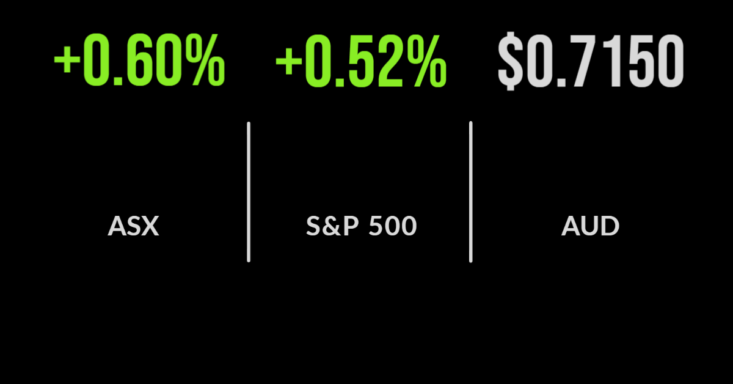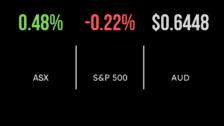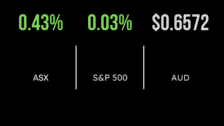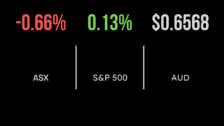ASX breaks three-week losing streak, REA beats, Boral goes ex-capital return
The S&P/ASX200 looked beyond the sharp selloff in technology stocks overnight to post a 0.6% gain on Friday.
The result was broad-based with almost every sector higher, with materials, energy and technology all finishing over 1% in the black. This came despite Meta’s massive selloff in the US session.
Boral (ASX: BLD) shares fell 41.8%, representing the amount of the capital return and special dividend announced earlier in the week.
Shares in REA Group (ASX: REA) managed to deliver a 31% jump in profit on the back of a 37% jump in revenue to $590 million. The result was driven by a buoyant property market in Australia.
The result was a record dividend of 75 cents per share and a massive contribution to News Corp’s solid update.
News (ASX: NWS) shares gained 5.7% after delivering a US$262 million profit for the quarter, a record since its listing in 2013. Foxtel’s pivot into streaming has been a key contributor.
Over the week, the utilities and energy sectors dominated, gaining 4.4 and 4.9% respectively, which is somewhat unexpected given the former is seen as a defensive sector impacted by bond rates and the latter more cyclical.
Across the week fertiliser provider Nufarm (ASX: NUF) was the top performer, gaining 26%, with Qantas (ASX: QAN) gaining close to 10 and Ansell (ASX: ANN) the weakest down 16%.
US rallies on Amazon’s massive day, Snap, Pinterest surge
The US market finished the week on a positive note, with the Nasdaq gaining 1.6%, the S&P500, 0.5 and the Dow Jones falling slightly.
Amazon Inc (NYSE: AMZN) was the biggest contributor with the company delivering the largest single-day market value gain in history after jumping 13%.
This comes one day after Facebook (NYSE: FB) suffered the biggest single-day market value loss.
The company reported a far stronger than expected result, delivering another record revenue quarter of US$137 billion.
Their investment in electric vehicle maker Rivian (NASDAQ: RIVN) delivered US$11 billion in quarterly profit, whilst the cloud business Amazon Web Services continues to grow strongly, offsetting the loss-leading e-commerce business.
Snap (NYSE: SNAP) offered an insight into the other side of the social media spectrum with shares gaining over 58% after reporting its first profit of just $US22 million.
The group is seeing strong growth in users and advertising, as users move away from Facebook.
The US economy added another 467,000 jobs in January, but the unemployment rate increased to 4%.
Over the week all three benchmarks delivered gains, with the Nasdaq leading the way, up 2.4%, the S&P500 1.6 and the Dow Jones 1.1 as the tech strength returned.
Stock selection matters, passing on inflation, central bankers know best
If it wasn’t evident before then it should be today, stock selection truly matters in the current market environment.
In the last few weeks alone with have seen some of the largest and most powerful companies in the world drop significantly on what can only be considered strong earnings results.
First, it was Netflix, then Spotify and finally Facebook, all of which fell by as much as 20% due to weaker than expected outlook statements.
In this environment what you don’t own will be as important as what you do own.
Pricing power and ‘quality’ are the in-vogue characteristics when it comes to fund managers at the moment, as they seek to fund businesses that can pass cost inflation onto their clients. The unknown answer though is how elastic their demand actually is.
Consider Ansell, which reported a 13% increase in revenue, but just 2% growth in sales volumes, despite the pandemic entering the third year.
The headlines about central bankers being behind the curve or acting too late are coming thick and fast, hence the comments of the Reserve Bank Governor this week were timely.
He highlighted both the strengths and weaknesses within the economy, the fact that the key policy that was central to credit growth had been reversed, and that there was no pressing need to stop supporting the economy.
Most of all, he shifted the blame for the residential property price bubble from low-interest rates to the fact that there is and remains a massive shortage of property that people want to live in.











